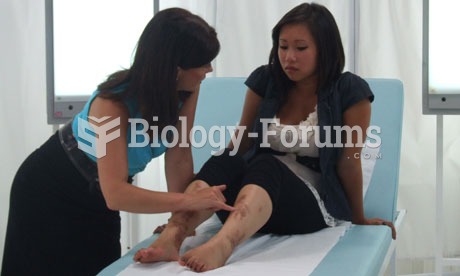This topic contains a solution. Click here to go to the answer
|
|
|
Did you know?
Between 1999 and 2012, American adults with high total cholesterol decreased from 18.3% to 12.9%
Did you know?
Congestive heart failure is a serious disorder that carries a reduced life expectancy. Heart failure is usually a chronic illness, and it may worsen with infection or other physical stressors.
Did you know?
Today, nearly 8 out of 10 pregnant women living with HIV (about 1.1 million), receive antiretrovirals.
Did you know?
The first oncogene was discovered in 1970 and was termed SRC (pronounced "SARK").
Did you know?
Many supplement containers do not even contain what their labels say. There are many documented reports of products containing much less, or more, that what is listed on their labels. They may also contain undisclosed prescription drugs and even contaminants.
 Killer whales, like this one spotted near Alaska, commonly breach, often lifting their entire bodies
Killer whales, like this one spotted near Alaska, commonly breach, often lifting their entire bodies
 (A) The nine regions of the abdominopelvic cavity. (B) The four regions of the abdomen, which are re
(A) The nine regions of the abdominopelvic cavity. (B) The four regions of the abdomen, which are re
 Although Neandertal brain sizes fall well within the modern human range, their EQ is lower than mode
Although Neandertal brain sizes fall well within the modern human range, their EQ is lower than mode




